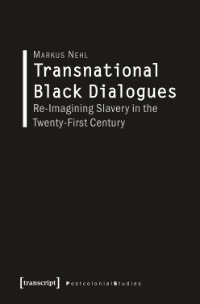By Markus Nehl
Markus Nehl focuses on black authors who, from a 21st-century perspective, revisit slavery in the U.S., Ghana, South Africa, Canada and Jamaica. Nehl’s provocative readings of Toni Morrison’s »A Mercy«, Saidiya Hartman’s »Lose Your Mother«, Yvette Christiansë’s »Unconfessed«, Lawrence Hill’s »The Book of Negroes« and Marlon James’ »The Book of Night Women« delineate how these texts engage in a fruitful dialogue with African diaspora theory about the complex relation between the local and transnational and the enduring effects of slavery. Reflecting on the ethics of narration, this study is particularly attentive to the risks of representing anti-black violence and to the intricacies involved in (re-)appropriating slavery's archive.
Bielefeld, Germany: transcript Verlag, 2016. 213p.



















